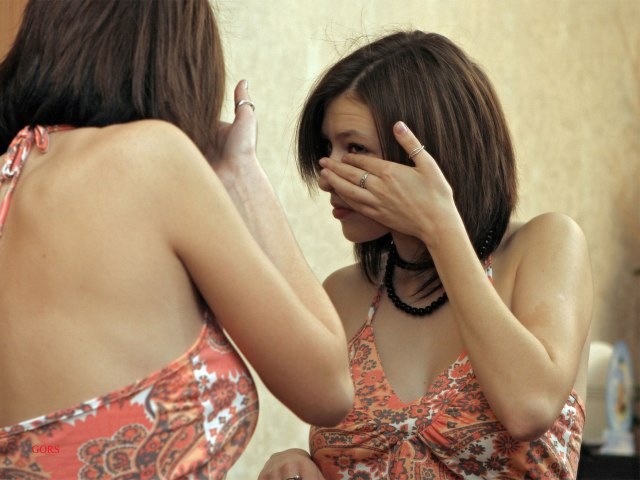Probably the first thing a person does when hit in the eye a foreign body is just trying to blinking or to perform turning of the eyeball in different directions to squeeze out the ocular environment a speck of dust, a grain of sand or insect, if some of these items were in the eye. When that didn't work, you can tightly shut eyes. This is done in order to squeeze out a tear, which can wash the eye and thus to remove the speck.
If the grain of sand got under the lower eyelid should move this part of the century with one hand, while the second to take a piece of soaked bandage, rolled into a tube, and in this way to try to remove the foreign body.
In addition, some people solve this problem by using a clean corner of handkerchief or clean fingers to gently lead to the nose in the closed state of the century.
When the subject falls under upper eyelid - here the situation is a little more complicated. In such a situation you need to look down, then take the upper eyelid close to the eyelashes and gently Unscrew it, while his other hand and a damp cloth to remove the speck got.
But the most effective and safe way to remove a foreign object is considered rinsing with warm water. Need to score the rubber enema with water and pour a thin stream of injured eyes. To achieve good results, it is recommended to wash the eyes in this way not less than twenty minutes.
After removing the mote preferably in the patient's drip eye drops antibiotic. It can be drops Chloramphenicol" or "Sulfacetamide", "TOPEX" or "Floksal", "Cipromed" or "Colbiocin". These medications will help to reduce the possibility of inflammation of the affected organ. If no of these drugs, you can also use other means, such as an antibacterial ointment, which is applied under the eyelid in small quantities.
If even after these measures and the means used for a certain period there remains in the eye the discomfort only increased, it is necessary to consult an ophthalmologist. It should be understood that any body – be it a grain of sand, an insect or chemical environment, can lead to such negative consequences, that sometimes the doctor won't be able to do anything in this situation. That is why it is important not to self-medicate, and to ask help from a specialist.
First aid
If the grain of sand got under the lower eyelid should move this part of the century with one hand, while the second to take a piece of soaked bandage, rolled into a tube, and in this way to try to remove the foreign body.
In addition, some people solve this problem by using a clean corner of handkerchief or clean fingers to gently lead to the nose in the closed state of the century.
When the subject falls under upper eyelid - here the situation is a little more complicated. In such a situation you need to look down, then take the upper eyelid close to the eyelashes and gently Unscrew it, while his other hand and a damp cloth to remove the speck got.
But the most effective and safe way to remove a foreign object is considered rinsing with warm water. Need to score the rubber enema with water and pour a thin stream of injured eyes. To achieve good results, it is recommended to wash the eyes in this way not less than twenty minutes.
Medication
After removing the mote preferably in the patient's drip eye drops antibiotic. It can be drops Chloramphenicol" or "Sulfacetamide", "TOPEX" or "Floksal", "Cipromed" or "Colbiocin". These medications will help to reduce the possibility of inflammation of the affected organ. If no of these drugs, you can also use other means, such as an antibacterial ointment, which is applied under the eyelid in small quantities.
If even after these measures and the means used for a certain period there remains in the eye the discomfort only increased, it is necessary to consult an ophthalmologist. It should be understood that any body – be it a grain of sand, an insect or chemical environment, can lead to such negative consequences, that sometimes the doctor won't be able to do anything in this situation. That is why it is important not to self-medicate, and to ask help from a specialist.


